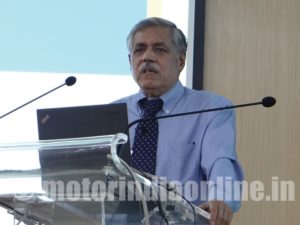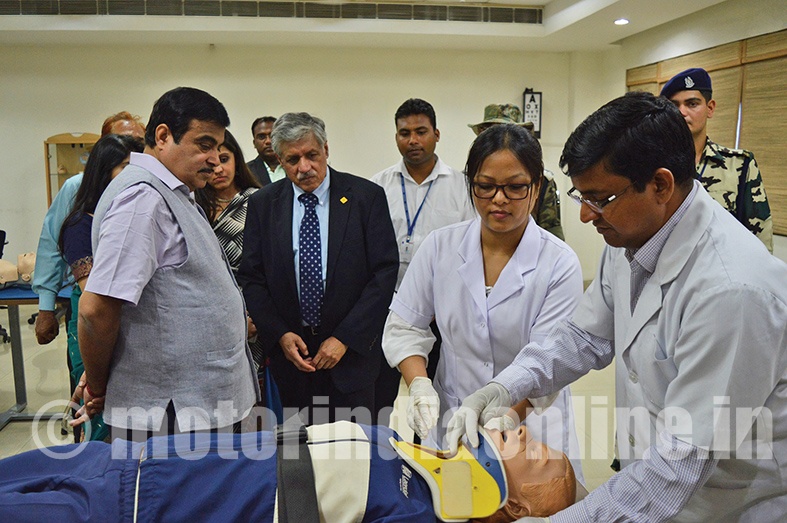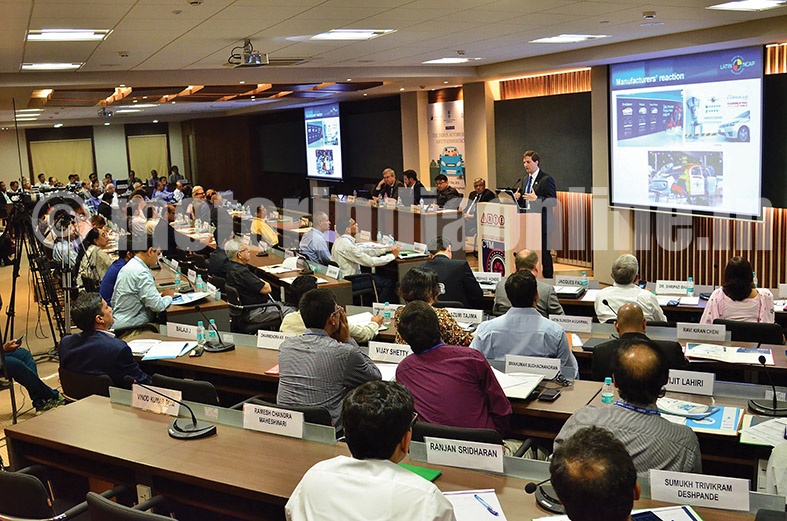The Institute of Road Traffic Education (IRTE) and the Global New Car Assessment Programme (NCAP), in partnership with the Ministry of Road Transport and Highways, organized the Indian Automobile Safety Conference at the College of Traffic Management, Faridabad, on May 16 and 17. The conference objective was to support the Indian automobile industry towards developing policies and measures in order to meet the ambitious road safety targets now included in the Global Goals for Sustainable Development and also the Global Plan of the UN Decade of Action for Road Safety (2011-2020) which suggests an integrated and holistic framework for road accident prevention.

The two-day conference, which brought together automobile and component manufacturers and leading motor vehicle safety experts, deliberated on developments with regard to NCAPs operating in Australasia, the ASEAN countries, Europe and Latin America as well as the Bharat New Vehicles Safety Assessment Programme. The crash test results of some popular cars conducted under the aegis of GNCAP was also released at the conference.
Unveiling the latest crash test results, David Ward, Secretary-General of Global NCAP, said: “The latest ‘SaferCarsforIndia’ results show how important it is for cars to have a body shell that can remain stable in a crash. This is an absolutely crucial pre-requisite for occupant safety, together with fitment at least of front airbags. Global NCAP strongly believes that no manufacturer anywhere in the world should be developing new models that are so clearly sub-standard.”
On the sidelines of the two-day seminar, Dr. Rohit Baluja, President, Institute of Road Traffic Education (IRTE) and Director, College of Traffic Management, in a detailed discussion with MOTORINDIA, maintained that a lot needs to be done for promoting road safety in the country.

Excerpts:
Being an active proponent of the promotion of road safety in India, how would you describe the current scenario? Does ‘Road Safety’ get the attention it deserves among regulators or other key stakeholders?
The road safety situation in India still remains uncertain, as road crash fatalities continue to rise in spite of all efforts being made by the Central and State Governments. There is attention, no doubt, but the solutions being adopted are not research based.
You have been critical of the Government initiatives. Do you see encouraging developments?
Yes, I am critical of the Government initiatives taken because I believe that the Government is looking at solutions only for the symptoms of the problem on hand rather than the problem itself.
What are the possible solutions to the problems that the country is facing today?
Road safety is crucial for scientific traffic management. India is yet to define “traffic management’ and the role and responsibilities within the traffic management system.
Traffic Engineering, which forms the basis of road safety management, is still a vacuum in India. The governments still believe in outsourcing traffic engineering which is the first cause of failure. Almost 73 per cent of the over 200 million vehicle population is powered by two-wheelers. This fact demonstrates the failure of “transport management” leading to establishment of a compatible public transport policy. We need to invest in definition and capacity building of all domains of traffic and transport management.

Beyond road safety, are there any other initiatives you feel are important to develop a long-term plan to improve mobility and transportation in India?
Transport is the basis of sustainable development of any economy. Today India needs to lay emphasis on transport planning, and in order to make this operational, traffic management should be classified as the need of the hour. As we build roads, we should be able to manage them.
What else can help Indian roads to be safer? How important are auto components like airbags, ABS, EBD and tyres to help reducing accidents?
Safer vehicles, safer roads, safer legislation, safer drivers, in case accidents do happen then safer post-crash management practices.
What is the ideal mechanism to spread awareness regarding road safety?
‘Political will’ is the need of the hour, and in order to create a political will, a realistic bureaucratic will is the pre-condition for road safety.
What is your feedback regarding the driver training programmes you offer?
When licenses are freely available (in India), why should drivers opt for sitting in classrooms? The journey of effective driver training will see the light of day when “licence awarders will be punished for distribution of licences without proper testing as per the requirements of law”.
Please present us the key initiatives taken and the milestones achieved by IRTE.
IRTE was established as a not-for-profit research organisation to support government and non-government organisations towards building their capacities in traffic management. IRTE has over the last 25 years delivered many landmark initiatives, including Traffic Enforcement Vehicle “Interceptor” which has been recognised twice by its participation in the National Republic day Parades in 1996 and 2001. IRTE took the initiative to set up the Mobile Accident Investigation & Road Safety Reconnaissance Laboratory, CrashLab with a vision to revolutionize scientific collision investigation in the country and to support the police and other investigating authorities in determining factual causes and consequences of such collisions.
IRTE’s College of Traffic Management is the only single umbrella facility in the world which deals with all areas of safety in traffic management. Countless initiatives taken so far have been globally recognised, some of which can be seen on our website at www.irte.com.